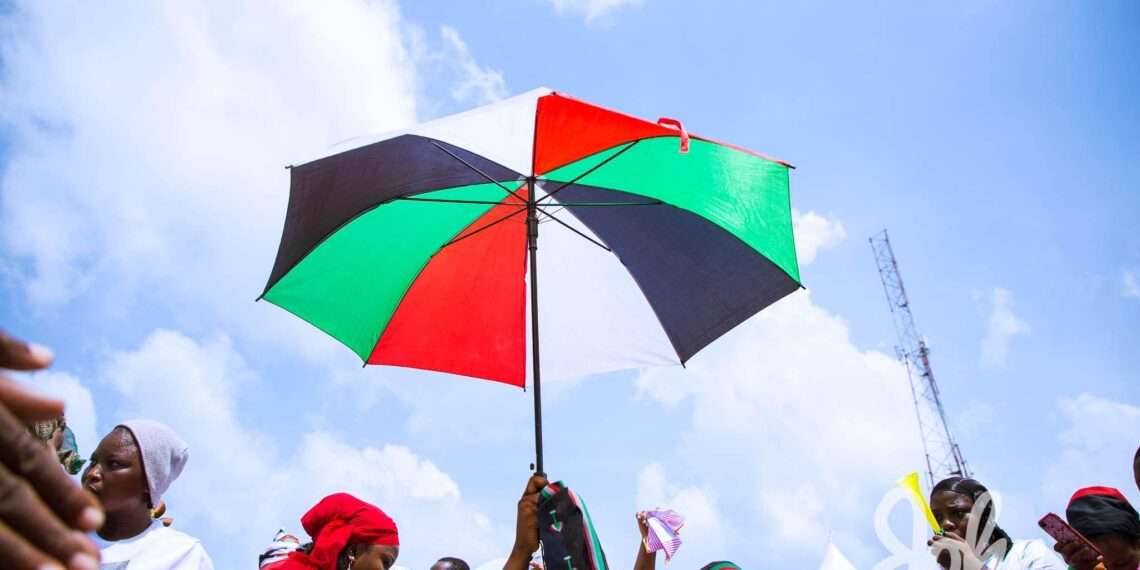The IMANI PULSE report has shed light on a dramatic shift in public opinion regarding the first six months of the National Democratic Congress (NDC) government under President John Dramani Mahama.
According to the think tank, optimism that initially surrounded the administration has steadily declined, giving way to rising skepticism fueled by controversies, policy contradictions, and mounting partisan tensions.
The IMANI Africa Public Understanding and Literacy for Sentiment and Election Analysis (PULSE) analyzed data from Facebook, X (formerly Twitter), YouTube, TikTok, podcasts, newsfeeds, and other online platforms.
Their findings reveal how the public mood transformed as key events unfolded between January and June 2025.
IMANI noted that January 2025 marked a “honeymoon period” for the NDC administration.
“Public sentiment was strongly positive (65–70%) during the inauguration and the launch of the ResettingGhana agenda.
“The swearing-in of Ghana’s first female Vice President, Jane Naana Opoku-Agyemang, reinforced hope for progressive governance. Civil society and independents adopted a ‘watchful optimism,’ while the opposition maintained relative quiet.”
IMANI Africa
However, IMANI noted that the announcement of a national cathedral probe divided opinions, with some viewing it as a step toward accountability and others criticizing it as politically motivated. Cabinet formation and ministerial vetting also generated significant public interest.

By February, the administration was gaining cautious approval. President Mahama’s first State of the Nation Address, delivered on February 27, emphasized austerity measures, travel restrictions for government officials, and anti-corruption efforts.
The decision to scale down Independence Day celebrations was widely seen as a symbolic act of fiscal discipline.
IMANI observed that these actions created a cautiously positive public outlook, with sentiment hovering between 55 and 60 percent.
Expectations began to grow for tangible economic improvements and job creation, though skepticism lingered beneath the surface.
March Marks a Turning Point For NDC
According to IMANI, the optimism began to falter in March. Sentiment became sharply divided, with 45 percent positive and 45 percent negative.
While the government earned praise for abolishing unpopular taxes like the E-levy and betting tax, its mass dismissals of public sector workers sparked widespread backlash.
The dismissals earned President Mahama the viral nickname “Terminator 1,” a term weaponized by the opposition to paint the government as politically vindictive.
Civil servants grew fearful of job losses, while young people, though pleased by tax relief, began to worry about their future employment prospects.
Between March 3 and 4, the government held a National Economic Dialogue to promote “home-grown” solutions.
Despite positive steps such as reducing fuel prices and stabilizing the cedi against the U.S. dollar, these achievements were overshadowed by growing public anxiety over dismissals and accusations of cronyism.
Public opinion during this period became sharply polarized. NDC supporters defended the government’s actions as a necessary clean-up effort, while critics accused it of targeting political opponents and undermining trust in state institutions.

“Credibility Crisis (April–May 2025). Negative perceptions rose (45% positive, 50% negative) as the private jet controversy undermined earlier austerity messaging. The government’s flagship Operation Recover All Loot (ORAL), initially hailed, faced doubts over selective justice.
“Despite international investment forums, opposition narratives of hypocrisy and inconsistency dominated online discourse.”
IMANI Africa
While some high-profile NDC corruption cases were quietly dropped — including those involving Collins Dauda, Stephen Opuni, Cassiel Ato Forson, and Kwabena Duffuor — arrests of outspoken NPP critics intensified.
These arrests, often carried out in what IMANI described as “Rambo-style” operations, were accompanied by vague charges such as “offensive conduct” or “breach of peace.” Bail was frequently denied or set excessively high.
As a result, fears of democratic backsliding began to spread, with 85 percent of online sentiment around these arrests being strongly negative.
“Opposition successfully amplified the hypocrisy narrative,” the report noted, adding that civil society groups began voicing concerns about the weaponization of state institutions.
Growing Disillusionment
By June, public discontent had reached new heights. The dismissals continued, fueling the “Terminator 1” narrative, while debates over selective justice and the private jet scandal dominated social media discourse. Even within the NDC, signs of internal disappointment began to surface.
Although the government launched initiatives aimed at economic diversification, such as a mining summit and fiscal reforms, these positive developments were largely drowned out by governance controversies.
Diplomatic protests and diaspora criticism over governance practices added to the growing negative coverage.
Trendy social media topics highlighted scandals such as the U.S. Embassy and National Service Scheme controversies, as well as new whistleblower revelations.

While NDC supporters focused on promoting fiscal discipline and defending dismissals as anti-corruption measures, opposition groups emphasized hypocrisy and selective prosecutions.
The IMANI PULSE report further evaluated the administration’s campaign promises against its actual performance, highlighting significant gaps between expectations and reality.
On anti-corruption, the government pledged swift justice and aggressive asset recovery through the Operation Recover All Loot (ORAL) initiative.
However, progress has been slow, with many high-profile corruption cases still unresolved, creating widespread perceptions of selective justice.
In terms of fiscal discipline, early cost-cutting measures, such as scaling down Independence Day celebrations, were initially well-received by the public.
Unfortunately, this credibility was later undermined by the private jet scandal, which cast doubts on the administration’s commitment to prudent spending.
Regarding job creation, instead of delivering new employment opportunities, the government’s actions were largely defined by mass public sector dismissals.
This not only generated fear and uncertainty among civil servants but also heightened anxiety among the youth, who had hoped for meaningful job prospects.
By the end of June, expectations for rapid economic recovery and inclusive governance had been replaced by frustration and suspicion.
The Road Ahead
IMANI concluded that restoring public trust will require bold reforms. The think tank recommended transparent prosecution criteria, equal treatment regardless of political affiliation, and an end to militarized arrest tactics.

Additionally, the administration must focus on tangible improvements in cost of living, job creation, and youth engagement.
Aligning policies with stated principles and delivering consistent governance will be key to reversing current negative trends.
“Public sentiment on the NDC administration between January and June 2025 underscores the primacy of credibility in governance. In Ghana’s fast-moving media environment, credibility is the most valuable political currency.”
IMANI Africa
READ ALSO: GSE Investors Smile as Market Delivers Nearly 50% Return in 2025



















